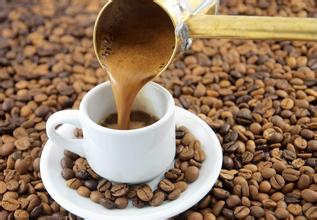Characteristics of Antigua Flower God Coffee beans in Guatemala-introduction to a series of flavor descriptions of manor producing areas
Volcanic soil, high altitude, humid and rainy climate, and active volcanic activity have created the unique geographical conditions of the Farahan Plateau. The Pacaya volcano in the region is the most active of the three still erupting volcanoes in Guatemala, leaving the Farahan Plateau often shrouded in a thin layer of dust and providing plenty of minerals for the soil of the Farahan Plateau. The dry period of coffee beans is the sunny season on the Farahan Plateau. Although it is often cloudy and foggy in the early morning, it will dissipate quickly, ensuring sun conditions in the area.
Coffee cultivation at La Tisha Manor on the Farahan Plateau began in 1920. The estate is planted with bourbon species, Kaddura, Pacamara, etc., with a variety of varieties. Of the 205acres (4046.8 square meters per acre) of the farm, 173acres are used to grow coffee. Another 32 acres of native forest is home to a variety of local wild species. There are several natural springs on the farm that provide adequate and high-quality irrigation for coffee plantations during the dry season, and they are also the power source for coffee processing plants (water treatment water). The New Oriental District is the latest of Guatemala's main coffee producing areas. In ancient times, it was a volcanic area, where the soil was made up of metamorphic rocks, so it was rich in minerals. The New Oriental District used to be the poorest area in Guatemala before it began to grow coffee. Since the 1950s, farmers in the mountains have started growing coffee on the natural, nutritious land here. Gradually, it has become a rising star in the Guatemalan coffee industry.
[features] the palate is well-balanced, mellow and full-bodied, with chocolate flavor.
[guava Plain Manor]
[country]: Guatemala
[producing area]: new Oriental
[manor]: guava Plain Manor
[producer]: Mr. Benjamin Donado
[treatment]: wine-scented sun treatment
[variety]: SL 28
[altitude]: 1675 m
[flavor]: pineapple, dried apricot, red wine
"Guayabo" is the transliteration of Spanish, which actually means "the plain of guava". The name is mainly because guava is really rich here. The estate is about a five-hour drive from the capital of Guatemala and is an impressively dry area. The owner of the manor is Mr. Benjamin Donado, who is in his sixties. The old man began to grow coffee in 1990, and the planting area has expanded from 28 hectares to 72 hectares now.
It doesn't sound special, but it's actually not as easy as it says, because the whole Guayabo coffee farm is built on a steep slope, with a minimum elevation of 1400 meters, and then rugged all the way up to more than 1600 meters. Because it's so steep, everyone thinks it's impossible to grow coffee under such conditions, but Mr. Donaldo has extraordinary physical fitness and great enthusiasm for coffee. Successfully planted a remarkable amount of good coffee.
Last year, a small amount of washed SL28 was produced in the guava plain, but this year, in cooperation with traders, new batches of sun-dried wine with unique flavor have been added. When cooperating with traders in this series, we have also communicated on the spot about the harvest standards and sun treatment methods (such as turning and drying days). From the results, it can be said to be a very happy harvest. In particular, SL28 is still a rare variety in Central America.

Important Notice :
前街咖啡 FrontStreet Coffee has moved to new addredd:
FrontStreet Coffee Address: 315,Donghua East Road,GuangZhou
Tel:020 38364473
- Prev

Introduction to the brewing method of flavor description in coffee producing area of Jinchu Valley in Kenya
Last year, as global supply increased and international coffee prices continued to fall, Kenyan coffee prices fell to their lowest level since 2007, seriously affecting the livelihoods of millions of coffee farmers. Coffee prices have rebounded since the beginning of this year due to an expected decline in coffee production due to dry weather in Brazil. Aromatic, full-bodied, with fruit flavor, taste rich and perfect. Kenyan coffee
- Next

Description of Panamanian Coffee Flavor introduction to manors in growing areas of boutique coffee beans
Panamanian coffee is famous for the rosy summer of the Emerald Manor, which is also famous in the Boquete region of its Chiriqui province. Poquet Boquete is a town of Chiriqui in the province of Riki. It is located near the border between Panama and Costa Rica, near the famous Baru Baru volcano.
Related
- Detailed explanation of Jadeite planting Land in Panamanian Jadeite Manor introduction to the grading system of Jadeite competitive bidding, Red bid, Green bid and Rose Summer
- Story of Coffee planting in Brenka region of Costa Rica Stonehenge Manor anaerobic heavy honey treatment of flavor mouth
- What's on the barrel of Blue Mountain Coffee beans?
- Can American coffee also pull flowers? How to use hot American style to pull out a good-looking pattern?
- Can you make a cold extract with coffee beans? What is the right proportion for cold-extracted coffee formula?
- Indonesian PWN Gold Mandrine Coffee Origin Features Flavor How to Chong? Mandolin coffee is American.
- A brief introduction to the flavor characteristics of Brazilian yellow bourbon coffee beans
- What is the effect of different water quality on the flavor of cold-extracted coffee? What kind of water is best for brewing coffee?
- Why do you think of Rose Summer whenever you mention Panamanian coffee?
- Introduction to the characteristics of authentic blue mountain coffee bean producing areas? What is the CIB Coffee Authority in Jamaica?

